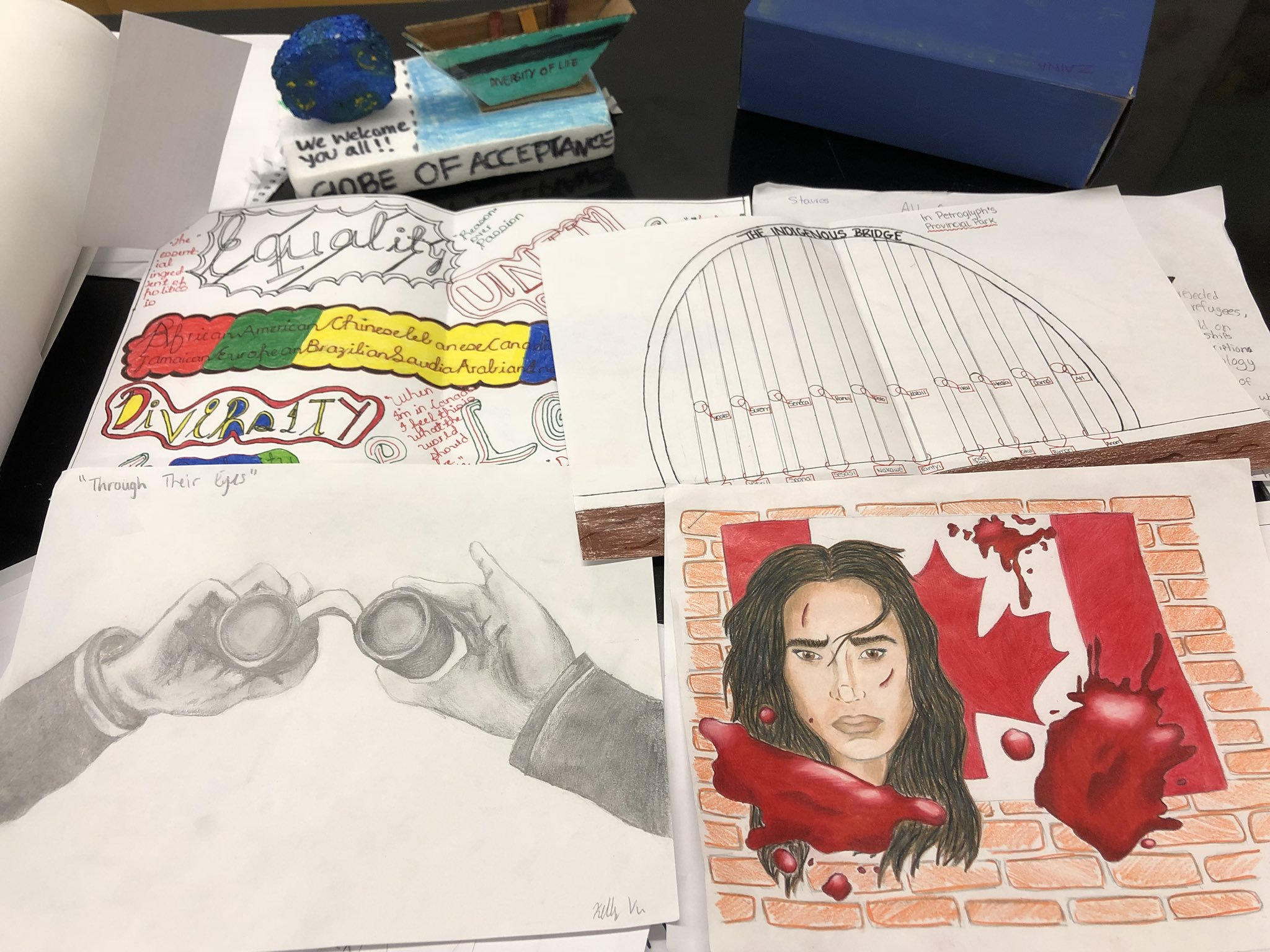This spring, Facing History and Ourselves, in partnership with the Azrieli Foundation Holocaust Survivors Memoir Program, invited 175 students from 6 schools to layer onto their learning about the history and legacies of the Holocaust, or of Canada's Residential Schools by reading Survivor memoir. Students read Theodore Fontaine’s Memoir Broken Circle: The Dark Legacy of Indian Residential Schools, or excerpts of Nate Leipciger’s Memoir The Weight of Freedom, then created pieces that reflected their understanding and responses to these testimonies, which were gifted to each Survivor.
Creating Meaningful Responses to Memoir and Engaging in Reciprocity
Posted by Alysha Groff on June 21, 2019
Topics: Toronto, Holocaust, Memoir, Facing History and Ourselves, Survivor Testimony, Canada, Residential Schools, Canadian History, Student Work, project, genocide, Holocaust and Human Behaviour, reflection, Connected Learning, Grade 10 History, HSB, CHC, difficult conversations, trc, stolen lives, facing history pedagogy, Azrieli Foundation Memoirs, Decolonizing Schools, Holocaust History in Canada, Facing Canada, cross curricular teaching and learning, collaborative inquiry
“Those who do not learn history are doomed to repeat it.” How many of us have heard this quote or a variation of it? Sayings like these are repeated so often nowadays that they have lost meaning. People will complain, “I don’t need you to lecture me, I already know all this,” “The past is the past, leave it behind where it belongs,” or a blatant dismissal from those who are so cemented in the now, that they refuse to see the truth right in front of them.
Topics: Student Voices, Choosing to Participate, Armenian Genocide, Students, Facing History and Ourselves, Holocaust Education, Rwanda, Student Work, Genocide and Crimes Against Humanities Course, Equity in Education, Facing Canada
A Mindful Classroom: Establishing a Safe Space for Sensitive Topics
Posted by Heidi Crowley on March 26, 2019
A Mindful Classroom: Establishing A Safe Space for Sensitive Topics
Many of us have seen the importance of mindfulness in our classrooms and personal lives. Being present and aware are integral to truly absorbing what is around you. How mindful are we of exactly what is around us in the classroom? The physical space we build for our students is often an afterthought to efficiency and more intangible metrics of behaviour and dynamics. This year, I made it my goal to be mindful of the materials within my classroom and how well they represent the values I hope we exercise within these walls.
Topics: Art, Student Work, Indigenous History, Social and Emotional Learning, Middle School, Culturally Responsive and Relevant Pedagogy, facing history pedagogy, Treaty, Facing Canada, cross curricular teaching and learning
Going Beyond Canada 150: Memorial Design as a Course Culminating Task
Posted by Mike Elias on October 29, 2018
Why is studying history relevant?
Canada Day, Independence Day, Bastille Day. Theses are days of celebration. People gather, wave flags, watch fireworks, and enjoy a long weekend in celebration. But what exactly are these days in celebration of? Why do we mark particular days with significance? Are these days equally as important for all people? Why do we honour the people we do? Are these people significant for all groups and generations? Can we change the way we remember individuals or honour new ones in light of new information?
Topics: Student Voices, Holocaust Education, Memorial, Student Work, legacy, Grade 10 History, CHC, Black History, Decolonizing Schools, culminating

.jpeg)

